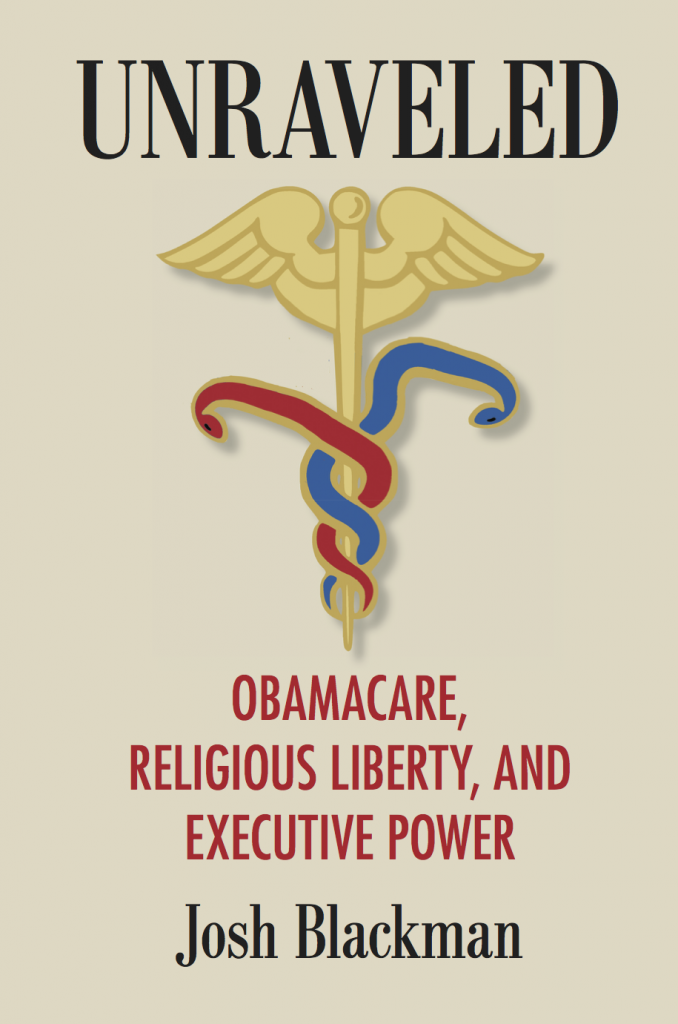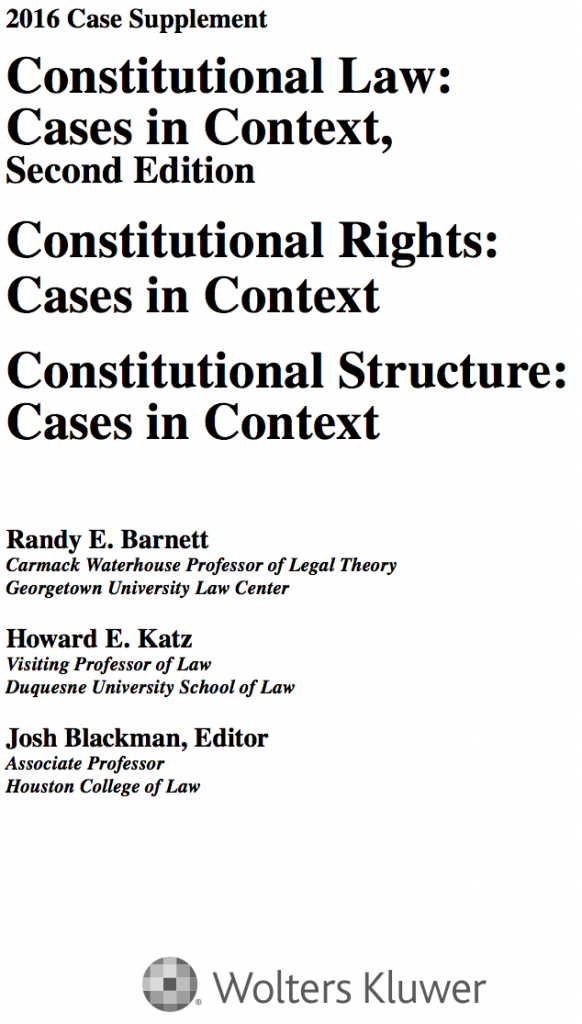The Chicago Law Review is hosting an online symposium about “Presidential Politics and the 113th Justice.” Randy Barnett and I submitted a piece titled “Restoring the Lost Confirmation.” As you may guess, we discus on how a renewed focus on originalism could improve the confirmation hearing process. Also check out the submissions from Amy Howe, Lisa McElroy, Michael Stokes Paulsen, Kermit Roosevelt, Erwin Chemerinsky, Marci Hamilton, and Michael Dorf.
Here is the abstract of our piece:
There is a silver lining to the stormy cloud brewing over Justice Antonin Scalia’s crepe-covered seat. During his speech nominating Judge Merrick Garland to the Supreme Court, President Barack Obama faulted Democrats and Republicans for their prior positions on judges. “[T]here’s been politics involved in nominations in the past” on both sides, Obama observed. He is right. Over the past three decades, presidents and senators from either side of the aisle have ratcheted up the tension over Supreme Court nominees. And the linchpin of that conflict is what has become an utterly meaningless ritual: the confirmation hearing. But not for the reasons you may think.The conventional wisdom is that, in their present form, judicial confirmation hearings serve no meaningful purpose. This is because nominees, who are rationally self-interested in being confirmed, refuse to answer any questions that could jeopardize their prospects. Instead—the theory goes—when asked a controversial question, the nominee filibusters and obfuscates. Candidates of both parties are trained through rigorous “murder boards” to provide answers that are designed to shed as little light as possible on how they would behave as judges.
However, the conventional wisdom is based upon an incomplete account of how the hearings have devolved. While we agree that the current dysfunctional state of the confirmation process stems from the failed appointment of Judge Robert Bork to the Supreme Court, there is a widespread misunderstanding of what exactly went wrong at the Bork hearing. We contend the types of questions asked by both Democratic and Republican senators—at that hearing and since—assume a “legal realist” emphasis on results rather than on legal reasoning. The focus has been on cases of the Court rather than on clauses of the Constitution. Each side is trying to get nominees to tip their hand on how they will decide cases that each side cares about. But there is a better way.
This Essay proceeds in three parts. First, we identify three distinct “moves” that allow nominees to skate away from questions that might reveal that they would reach the “wrong” results in future cases. Second, we demonstrate how a focus on the meaning of clauses of the Constitution, rather than the cases before the Supreme Court, can fundamentally transform how hearings are conducted. We harbor no illusions that members of the Senate Judiciary Committee all possess the sufficient knowledge to meaningfully engage in this line of questioning, beyond reading prepared questions from staffers. But we do not need a cadre of originalist senators. The beauty of our reform is that no rules need be changed; no bipartisan agreement need be reached; and even the Republicans on the Senate Judiciary Committee need not all be of the same mind. For this approach to restore the lost confirmation hearing, we need only a senator or two to focus their limited time on originalism.
Finally, we explain how the gravitational pull of originalism can tug future justices, and ultimately the Supreme Court itself, closer to the original understanding of the Constitution. This new methodology would improve public confidence in the courts, and encourage presidents to be more mindful of the text of the Constitution, rather than outcomes, when selecting nominees. Our proposed approach seeks to restore the lost confirmation, where the focus on the text and history of our “republican” Constitution—the truly immutable characteristics of our fundamental law—is paramount and timeless.
Randy and I will have an expanded version of this article in the Fall issue of National Affairs–perhaps well-timed for whatever may happen with Justice Scalia’s seat in the next few months.

